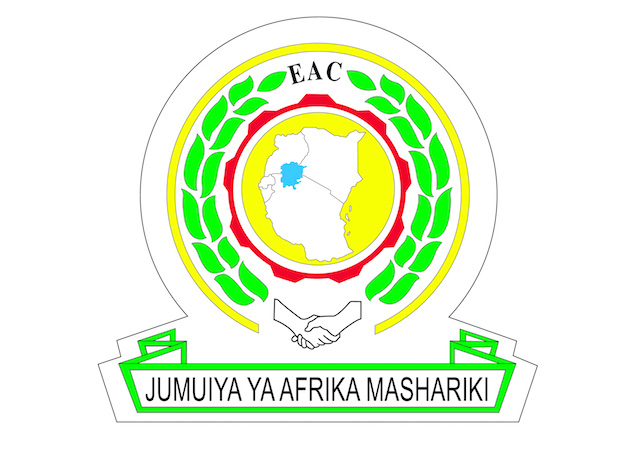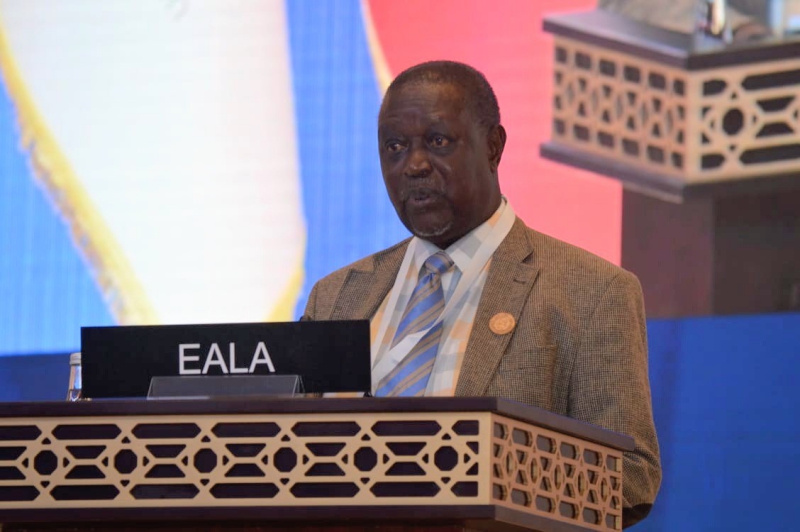
Posted in Press Release
East African Legislative Assembly, Arusha, 29 April, 2019: The 5th Meeting of the 2nd Session of EALA commences this morning (April 29th, 2019) in Arusha, Tanzania, and runs through to May 18th, 2019.
Key items during the three-week Sitting include the debate on the East African Community Youth Council Bill, 2017 and the Report of the Committee on consideration and review of the Accounts Report for the Financial Year ended June 30th, 2017. Also, to be tabled and debated in the House is a key report of the Committee of Agriculture, Tourism and Natural Resources on oversight with stakeholders for Budgetary enhancement in the Agricultural sector, an activity which took place in March this year.
The object of the EAC Youth Council Bill, 2017, is to provide a legal framework for the harmonization of laws and policies regarding the youth in the Community. This Bill is premised on Article 120 of the Treaty for the Establishment of the EAC and in particular seeks to implement the EAC Youth Policy, 2014, which is an integral component of the 4th Development Strategy.
The Development Strategy identifies among other things; the strengthening and promotion of policies, laws and programmes that focus on the development of youth in the Community. Last month, EALA held public hearings in the Partner States to concretize the inputs and views of youth among other stakeholders on the Bill. The report of the Committee on Accounts on its part, was debated but not adopted when the Assembly met in Arusha on November 6th, 2018.
Instead, the House asked the Committee on Accounts chaired by Hon Dr Ngwaru Maghembe, to revise the recommendations contained therein the report to make it more time bound and actionable. The House is expected to receive an update on the matter.
Other significant issues at the forthcoming Plenary are key meetings of all Committees of the House. Coming up for consideration the entire first week are a number of issues to be deliberated on at Committee level. The six Committees are:
- the Committee on Accounts,
- the Committee on Agriculture, Tourism and Natural Resources,
- the Committee on General Purpose,
- the Committee on Regional Affairs and Conflict Resolution,
- the Committee on Communication, Trade and Investment, and
- the Committee on Legal Rules and Privileges.
The whole House will also meet with a number of stakeholders. A sensitization workshop on Tripartite Transport and Transit facilitation programme (TTTFP) is planned to apprise the House of progress in the transport and infrastructure sector. The objective of the programme anchored under the EAC, Southern African Development Community (SADC) and the Common Market for Eastern and Southern Africa (COMESA) Tripartite, is to facilitate the development of a more competitive, integrated and liberalized road transport are in the process of developing common standards.
Already, the initiative has carried out baseline studies in 19 participating Member States (including the EAC Partner States) and the workshop is anticipated as an avenue to unpack the TTTFP legal instruments of the proposed Vehicle Load Management Agreement as well as developed model laws and other standards. Already, the One Stop Border Post Control Bill, enacted by EALA is enforce.
The African Forum and Network on Debt and Development (AFRODAD) will also hold a session with the Assembly on Illicit Financial Flows and Sovereign debt crisis – in the context of Africa in general and East Africa, in particular. In addition, the Executive Secretary and senior officials of the Lake Victoria Basin Commission (LVBC) will hold an interactive session with the House.
The Assembly which holds six Plenary Sessions in every Financial Year, has a principle of rotation. The last sitting (4th Meeting) was held in the isles of Zanzibar on February 16th, 2019 to March 9th, 2019.
- ENDS -
For more information, please contact:
Bobi Odiko
Senior Public Relations Officer
East African Legislative Assembly
Arusha, Tanzania
Tel: +255-27-2508240
Fax: +255-27-2503103
Cell: +255-787-870945, +254-733-718036
Email: BOdiko [at] eachq.org
Web: www.eala.org
About the East African Legislative Assembly:
The East African Legislative Assembly is the Legislative Organ of the East African Community. Its Membership consists of a total of 62, of whom 54 are elected Members (9 from each Partner State) and eight ex-officio members (the Ministers responsible for EAC Affairs from the Partner States, the Secretary General of the Community and the Counsel to the Community).
The East African Legislative Assembly has legislative functions as well as oversight of all East African Community matters. The enactment of legislation of the Community is put in effect by means of Bills passed by the Assembly and assented to by the Heads of State, and every Bill that has been duly passed and assented to become an Act of the Community and takes precedent over similar legislations in the Partner States. EALA has to date passed 79 pieces of legislation.

Posted in Press Release
East African Legislative Assembly, Doha, Qatar: 8th April, 2019: The 140th Inter-Parliamentary Union Assembly commenced in Qatar, this week (April 6-10, 2019) with over 1000 MPs from 160 Parliaments globally, in attendance to deliberate on issues under the umbrella theme of “Parliaments as platforms to enhance education for peace, security and the rule of law”
EALA Speaker, Rt Hon Ngoga Karoli Martin, is represented by EALA Member and Commissioner, Hon Dr Oburu Oginga. Hon Dr Oginga addressed the congregation this morning (April 8h, 2019) urging parliamentarians to enact legislation and provide oversight on policies on the education sector that build and enhance sustainable peace. Hon Dr Oginga termed access to education, resources, respect for diversity and identity as well as equal and equitable participation in decision making at all levels as critical. He further called for measures to address the historical and contemporary injustices.
The EALA Member said Parliaments need to be more impactful in their approaches to addressing peace and ensuring rule of law. Hon Dr Oginga told legislators to advocate for targeted education and initiatives that abhor violence, enhance peace-building tools and support human security around the globe for positive societal impact.
Hon Dr Oginga said EALA had continued to play a critical part in so far as peace and security is concerned. “The Assembly has passed the EAC Human and Peoples’ Rights Bill, 2012 and about 12 Resolutions on the subject matter. The Assembly further works with the EAC Secretariat and other institutions in promoting research, building pertinent partnerships and peace initiatives as measures to curtail forms of insecurity and thus promote peaceful co-existence of communities”, he said. The Member called for full implementation of the Peace and Security Protocol including the setting up of an EAC Security Council and an EAC Stand-by-Brigade as well as the institutionalization of the Panel of the Wise and other related institutions.
He further called for effective oversight on the projects of the agencies that ensure cohesiveness and concerted efforts towards ensuring humanity issues are addressed.
The 140th Assembly is covering multiple subjects including role of fair and free trade and investments in achieving the Sustainable Development Goals (SDGs) especially that which regard economic equality, sustainable agriculture, industrialization and innovation. A number of emergency items are further expected to be tabled during the week-long event as is provided for under Assembly Rule 11.1 and Article 14.2 of the IPU Statutes. The items proposed include a call for urgent international action to support Mozambique, Malawi and Zimbabwe, hit by the cyclone Idai and another on preventing and combating racism, intolerance, islamophobia and xenophobia.
Other EALA Members in attendance are, Hon Dr Francois Kalinda, Hon Rose Akol, Hon Dr Gabriel Garang Alaak, Hon Pamela Masaay and senior EALA Parliamentary staff.
The 140th IPU edition has also attracted over 50 Speakers of Parliament and 40 Deputy Speakers. Of the MPs in attendance, 20 per cent are young MPs under 45 years of age and 33 per cent are women.
Other EAC Speakers and Parliamentarians are also in attendance. The Republic of Kenya is led by the Speaker of the Senate, Rt Hon Kenneth Lusaka. Rt Hon Nyabenda Pascal, Speaker of the Burundi National Assembly leads his delegation as Rt Hon Job Ndugai, Speaker of Parliament of Tanzania leads legislators from the Parliament of Tanzania. Delegations from the Parliament of Uganda, Parliament of Rwanda and the Transitional National Legislative Assembly of the Republic of South Sudan are also in attendance.
- ENDS -
For more information, please contact:
Bobi Odiko
Senior Public Relations Officer
East African Legislative Assembly
Arusha, Tanzania
Tel: +255-27-2508240
Fax: +255-27-2503103
Cell: +255-787-870945, +254-733-718036
Email: BOdiko [at] eachq.org
Web: www.eala.org
About the East African Legislative Assembly:
The East African Legislative Assembly (EALA) is the Legislative Organ of the Community and has a cardinal function to further EAC objectives, through its Legislative, Representative and Oversight mandate. It was established under Article 9 of the Treaty for the Establishment of the East African Community.


